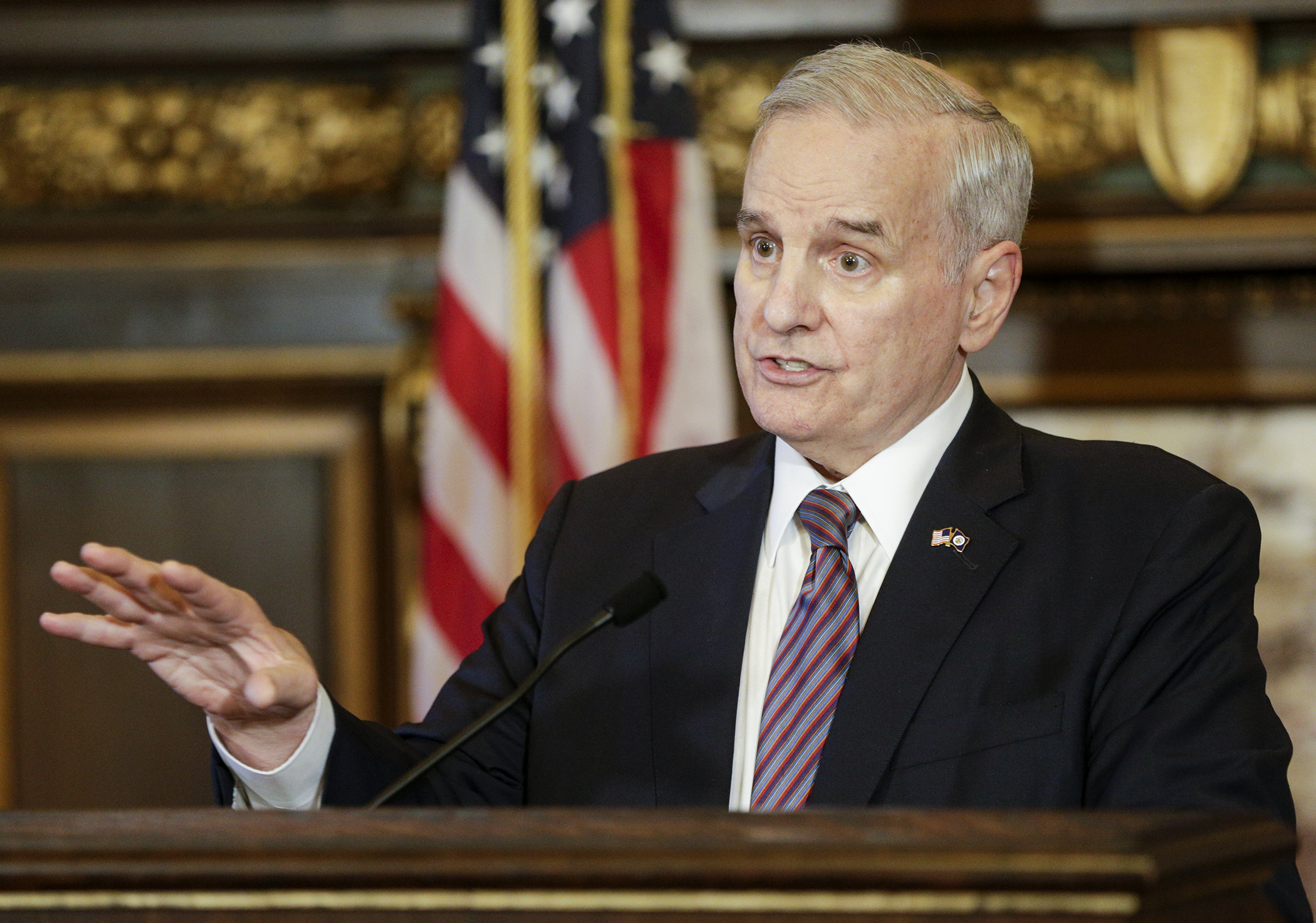Governor still hopeful negotiations can solve legislative funding fight

Gov. Mark Dayton said Friday he remains hopeful his dispute with Republican legislative leaders over funding for the House and Senate can be solved at the negotiating table, rather than the courtroom.
House Speaker Kurt Daudt (R-Crown) and Senate Majority Leader Paul Gazelka (R-Nisswa) said last week they plan to sue the governor in order to restore legislative funding for the 2018-19 biennium that Dayton line-item vetoed from a state government finance bill May 30.
The governor said he has not yet engaged in “substantive legal discussions” regarding a potential legislative lawsuit, nor considered the potential ramifications on future governors and legislatures should such a legal case come forward.
“I’d like to see this resolved through negotiations,” Dayton said during a morning news conference at the Capitol.
A meeting with House and Senate leaders is tentatively scheduled for next week, he said.
WATCH Full video of the governor's June 9 news conference
Daudt and Gazelka have charged that the governor acted unconstitutionally in defunding the House and Senate, while Dayton has asserted the veto was within his rights.
The governor has said he will call a special session of the Legislature to restore the funds if lawmakers agree to amend portions of the tax and budget bills he signed into law late last month.
The items Dayton wants changed are:
- elimination of tax breaks on tobacco products;
- cancellation of changes to the state’s estate tax that would impact Minnesotans who die with estates valued at more than $2 million, or farmers and businesses valued at more than $5 million;
- elimination of a freeze on statewide business property taxes;
- removal a measure that explicitly prevents undocumented Minnesota residents from obtaining a state driver’s license; and
- amending changes to the state’s teacher licensure system that were included in the omnibus education finance bill.
Daudt has expressed an unwillingness to renegotiate bills that the governor has already signed.
“(Dayton) had his constitutional right to veto those bills if he did not like the language in them,” he said during a June 2 Legislative Coordinating Commission hearing. “He did not. He signed them.”
Related Articles
Search Session Daily
Advanced Search OptionsPriority Dailies
Legislative leaders set 2026 committee deadlines
By Lisa Kaczke Legislative leaders on Tuesday officially set the timeline for getting bills through the committee process during the upcoming 2026 session.
Here are the three deadlines for...
Legislative leaders on Tuesday officially set the timeline for getting bills through the committee process during the upcoming 2026 session.
Here are the three deadlines for...